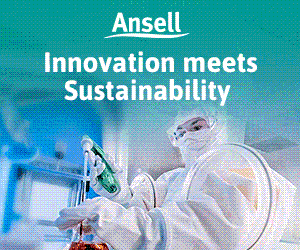An increasing number of countries legalise cannabis for medicinal purposes. New Zealand, Belgium and France, for example, are currently discussing to follow Germany, where cannabis for medicinal use was legalised in 2017.
France recently published a proposed framework for implementing a French medical cannabis pilot programme that is based on the recommendations of the French Comité Scientifique Spécialisé Temporaire (CSST). Its main objective is to evaluate cannabis prescription and dosage and to assess its acceptance among health care professionals and patients. Safety and efficacy data for medical cannabis will also be collected.
The pilot programme will start as soon as the French Public Health Ministry has given green light and provided the necessary funding. Thus, medical cannabis is not expected to be legalised in France prior to the end of 2021.
Cannabis products with unauthorised health claims are emerging in the Canadian market illegally
Health Canada (HC) published a proposed regulatory approach for a new class of cannabis products referred to as Cannabis Health Products (CHPs), which would not require practitioner oversight. According to HC, there is a growing interest in the potential therapeutic use of cannabis for minor ailments. Indeed, cannabis products with unauthorised health claims are emerging in the Canadian market illegally, such as cannabidiol (CBD) products containing no more than 10 ppm tetrahydrocannabinol (THC).
Interest in these CBD products has also increased in the United States since Congress passed the Agriculture Improvement Act of 2018 (the 2018 Farm Bill) last December. Among other things, this law established a new category of legal cannabis classified as "hemp"; cannabis and cannabis derivatives with no more than 0.3% of THC on a dry weight basis concentration.
Following these global developments, there will be a growing need for producers to supply chemists, physicians and patients with the newly legalised drug.
Qualification of medical-grade cannabis
Several European countries published pharmacopoeial monographs for cannabis flowers (e.g. the German DAB Monograph, the Draft DK Monograph) and extracts (e.g. the German Draft DAB Monograph). Other countries, New Zealand and the US for example, have their own quality standards—the NZ Product Quality Standards Monograph; American Herbal Pharmacopoeia: Cannabis Inflorescence and Leaf (2013). However, these standards are currently not harmonised, neither between the EU Member States nor between the EU and/or Canada, the US, New Zealand, and others. Nonetheless, the European Pharmacopoeia (Ph. Eur.) is expected to publish a cannabis monograph in 20191.
In Europe, medical cannabis products must comply with the relevant requirements laid down under Medicinal Law (including Pharmacopoeias, EU-GMP/GDP and GACP) and the Narcotics Law. In Germany, for example, the BfArM (the Federal Institute for Drugs and Medical Devices) has taken over new responsibilities by establishing the Cannabis Agency. The goal of the agency is to contribute to ensuring the supply of medical-quality cannabis.
The agency will only manage and monitor the cultivation, harvest, processing, quality assurance, storage, packaging and distribution of cannabis to wholesalers, chemists or manufacturers
Cannabis is not meant to be stored directly at BfArM during any stage of the purchasing, harvesting or distribution process. These steps will be carried out by relevant producers or other commissioned companies (i.e. suppliers, importers). Hence, the agency will only manage and monitor the cultivation, harvest, processing, quality assurance, storage, packaging and distribution of cannabis to wholesalers, chemists or manufacturers.
The EU GMP inspectorates are responsible for issuing manufacturing and import licences or EU GMP Certificates. Thus, they will perform inspections at production sites of manufacturers who apply for these certificates and licences. For example, the starting point for any German GMP certification is a German-based company that applies for such a certificate at their responsible local authority2.
Many questions remain
Some of the questions that are intensely discussed in relation to medical cannabis are:
- When does Good Agricultural and Collection Practice (GACP3) end and EU GMP (Good Manufacturing Practice4) start
- Growing: What are the requirements regarding soil, light, irrigation, facilities, etc.?
- Harvest: Does cutting, trimming, and washing fall under the harvest steps?
- Post Harvest: Is the EU/GMP certificate required only for “drying to packaging” operations, or for the full production cycle, including growth?
- What are the requirements relating to physical security measures?
- What has to be considered in regard to Good Distribution Practice (GDP5)?
- How to get a Manufacturing Authorization (MA) and Import-License
- How to get an EU-GMP Certificate?
- What are the requirements of the (German) Narcotics Law and/or the Single Narcotic Convention6?
- What are the quality requirements for Cannabis and Extracts?
- Are there any special requirements for extraction solvents used in the production of cannabis extracts?
- What are the differences between the various pharmacopoeial monographs and quality standards?
- Equipment/Manufacturing: What has to be considered in relation to qualification and validation?
- What are the stability requirements?
- Which aspects have to be considered for analytical labs?
- Qualification of suppliers to the EU: What are the gaps between GPP (Good Production Practices7) and EU-GMP?
- What will be checked during EU GMP inspections?
EU-GMP vs. GPP
Since there is currently no harmonised legislation globally or in the EU, some of the topics listed above are very relevant for EU as well as non-EU growers/suppliers and both exporters and importers.
For example, the EU-GMP guidelines include principal requirements for:
- The Pharmaceutical Quality System (PQS)
- Personnel
- Premises and Equipment (including Qualification)
- Documentation (including Records and Data Integrity)
- Validation, including Manufacturing, Computer System, and Analytical Validation
- Production
- Quality Control (including Stability Programme)
- QP Batch Release
- Outsourced Activities (including Audits)
- Complaints and Product Recall
- Self Inspection
The EU-GMP of Annex 7 – Manufacture of Herbal Medicinal Products provides guidance for the application of GACP.

Dr Andrea Kühn-Hebecker
Best practices
In Canada, for example, Good Production Practices (GPP) for the cultivation of medicinal cannabis has to be applied8. So far, the GPP framework regulates the cultivation and processing of all cannabis products for both medicinal and recreational use.
The major components of GPP concern facilities and equipment, sanitation, quality assurance, quality control, record keeping, and security requirements9.
According to new Zealand's Medicinal Cannabis Scheme consultation1, there are a number of areas where the two standards EU-GMP and GPP do not align. It states that the EU-GMP guidelines “are more detailed, providing principles and interpretation” on what must be included in a PQS to comply, “while the GPP standard provides less detail and is, therefore, more open to interpretation. This difference makes it difficult to directly compare the two standards”.
For example, stability testing is not required under GPP. Under EU-GMP, the stability programme designed per the ICH Q1 Guidelines is necessary to establish the shelf life of a product. EU-GMP requires full validation as part of the PQS, but this is currently not required under GPP.
Since there are some substantial differences—that have to be identified in detail—between GPP and EU-GMP, non-EU suppliers will have to implement EU-GMP standards if they want to supply medical cannabis to the EU market. However, since there is currently no harmonised EU standard for medical cannabis, national legislations, guidelines and monographs will have to be followed and applied in addition to EU-GMP.
ECA Cannabis Working Group
In a move to developing a harmonised GMP standard for medical cannabis, the ECA Foundation is establishing a working group that will start to work on an overview of currently available guidelines from all around the world. The group will then further work on a white paper or some framework to support the development of a harmonised standard on a global level to show and work on closing the gaps currently existing between the different regional approaches and regulations.
The conference “GMP for Cannabis” in Heidelberg, Germany, on 29-30 October 2019, will provide an overview of all relevant regulatory and GMP/GDP requirements and aspects of medical cannabis.
N.B. This article is featured in the Sepyember 2019 issue of Cleanroom Technology. Subscribe today and get your print copy!
The latest digital edition is available online.
References*
- https://www.health.govt.nz/publication/medicinal-cannabis-scheme-consultation
- GMP certification and GMP certificate in Europe – an overview
- Good agricultural and collection practice for starting materials of herbal origin (https://www.ema.europa.eu/en/good-agricultural-collection-practice-starting-materials-herbal-origin)
- EudraLex - Volume 4 - Good Manufacturing Practice (GMP) guidelines
- Good Distribution Practice of medicinal products for human use
- United Nations Single Convention on Narcotic Drugs of 1961
- Good Production Practices Guide for Cannabis – Requirements under Part 5 of the Cannabis Regulations (ISBN: 978-0-660-25850-8), 2019
- https://www.canada.ca/en/health-canada/services/drugs-medication/cannabis/licensed-producers/additional-information-licensed-producers-under-access-cannabis-medical-purposes-regulations.html#a2
- https://www.cannabiscomplianceinc.com/application-of-gmp-in-the-cannabis-industry/
* Links have been checked on June 12, 2019




